
Balancing Efficiency and Sustainability: Solar Energy’s Impact
In today's rapidly evolving world, terms like "efficiency" and "sustainability" have become increasingly prevalent, especially when it comes to the conversation around energy sources. With climate change being a global concern, the emphasis on green energy has never been more vital. Solar energy is a prime example of an efficient and sustainable energy source that plays a crucial role in driving the shift toward renewable energy. In this blog, we’ll delve into the differences between efficiency and sustainability, explore the role of solar energy in green energy, and highlight the significance of solar panel manufacturers in this transformation.
Understanding Efficiency and Sustainability
What is Efficiency in Energy Systems?
Solar panel efficiency measures the amount of sunlight a panel can convert into usable electricity. This conversion happens when sunlight interacts with silicon or thin film cells within the panel, generating an electrical current
An efficient system aims to reduce energy wastage by utilizing the available resources to their fullest potential. For instance, when we talk about the efficiency of solar panels, we refer to how well a panel can convert sunlight into usable electricity. Solar panel manufacturers focus on creating photovoltaic (PV) modules that offer high-efficiency ratings to optimize energy production.
Efficiency is critical for ensuring that the maximum possible energy is extracted from the resources used. However, an efficient system is not necessarily a sustainable one. While a diesel generator might be efficient in its energy production, its reliance on fossil fuels and the associated environmental impact make it far from sustainable.
What is Sustainability in Energy Systems?
Sustainability, on the other hand, refers to practices that meet the current needs without compromising the ability of future generations to meet their needs. A sustainable energy system is one that minimizes environmental impact, reduces carbon footprint, and can be maintained over time without depleting natural resources. Solar energy is inherently sustainable because it uses sunlight, an abundant and renewable source of energy.
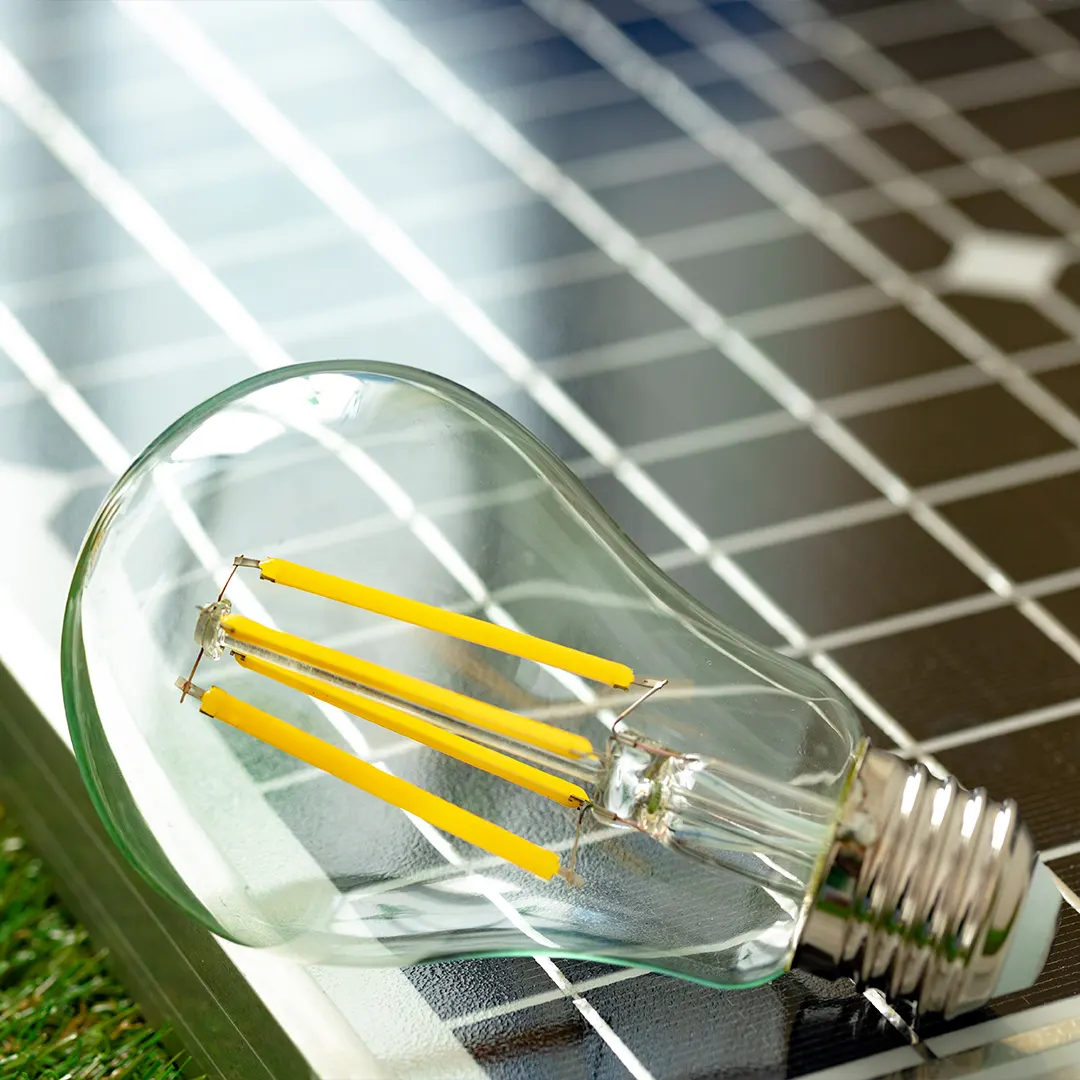
The Intersection of Efficiency and Sustainability in Solar Energy
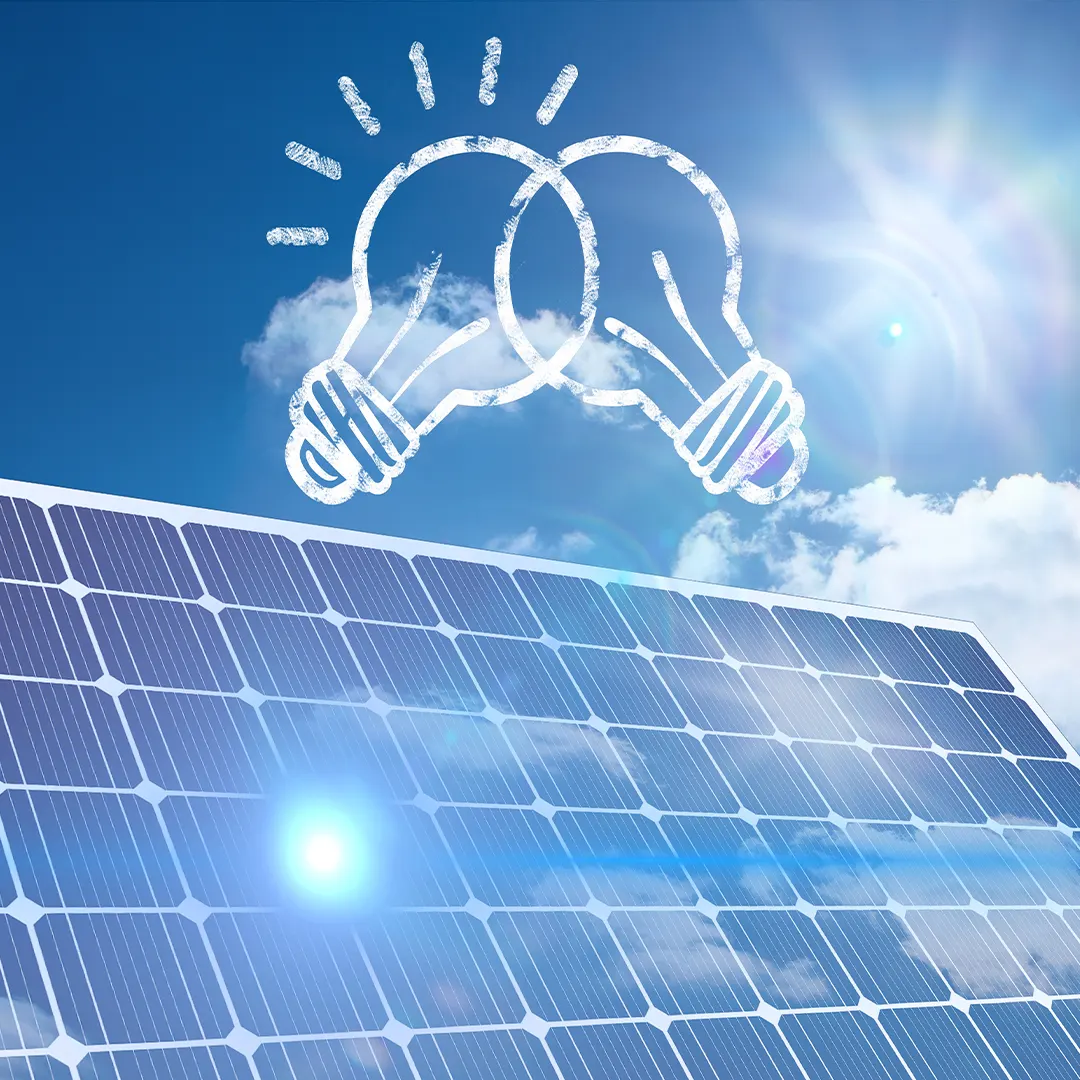
How Solar Energy Bridges Efficiency and Sustainability
The sun is a plentiful and freely available resource that can be harnessed to generate electricity through photovoltaic (PV) panels. Unlike traditional energy sources, solar power is clean, renewable, and has minimal environmental impact, making it a perfect choice for sustainable development.
By harnessing sunlight, solar PV modules generate electricity without emitting greenhouse gases or polluting the environment. This means that solar systems not only provide an efficient way to produce electricity but also do so in a manner that promotes long-term sustainability.
Role of Solar PV Module Manufacturers in Enhancing Efficiency
Solar module manufacturers are constantly innovating to enhance the efficiency of their panels. High-efficiency solar modules, such as monocrystalline panels , convert a greater percentage of sunlight into electricity compared to traditional panels. Solar panel manufacturers in India have been at the forefront of producing advanced technologies, making significant contributions to the green energy sector.
By choosing high-efficiency solar panels, not only can you reduce energy costs but also maximize the sustainability of your energy use. For further information about these cutting-edge products, check out our product page .
Solar Energy’s Contribution to Green Energy
Benefits of Solar Energy for a Sustainable Future
1. Reduced Carbon Emissions: Solar energy is clean, and it helps in reducing carbon footprints significantly. Traditional energy sources like coal and natural gas release a large amount of carbon dioxide when burned, which contributes to global warming. In contrast, solar energy generates power without any emissions.
2. Renewable and Abundant: Sunlight is abundant and renewable, making it a sustainable choice for energy production. Solar energy production does not deplete any resources, and as long as the sun shines, there will be a source of energy.
3. Energy Independence: Solar energy helps in promoting energy independence for regions that lack access to fossil fuels. With solar manufacturing companies in Gujarat and other regions of India, there is an opportunity for self-sustained energy systems.
4. Job Creation: The solar industry is booming, leading to job creation in various sectors, including manufacturing, installation, and maintenance. Solar energy thus contributes to sustainable economic growth.
Why Solar Panel Manufacturers are Key to the Green Energy Movement
The efficiency and sustainability of solar energy depend largely on the quality of solar panels. Solar panel manufacturers in India are continuously researching and developing more efficient and durable panels. The advancement of solar technologies like PERC (Passivated Emitter and Rear Contact) and bifacial panels has paved the way for better efficiency and sustainability. If you're interested in exploring these options, please Contact Us for more information on how solar panels can benefit your energy needs.
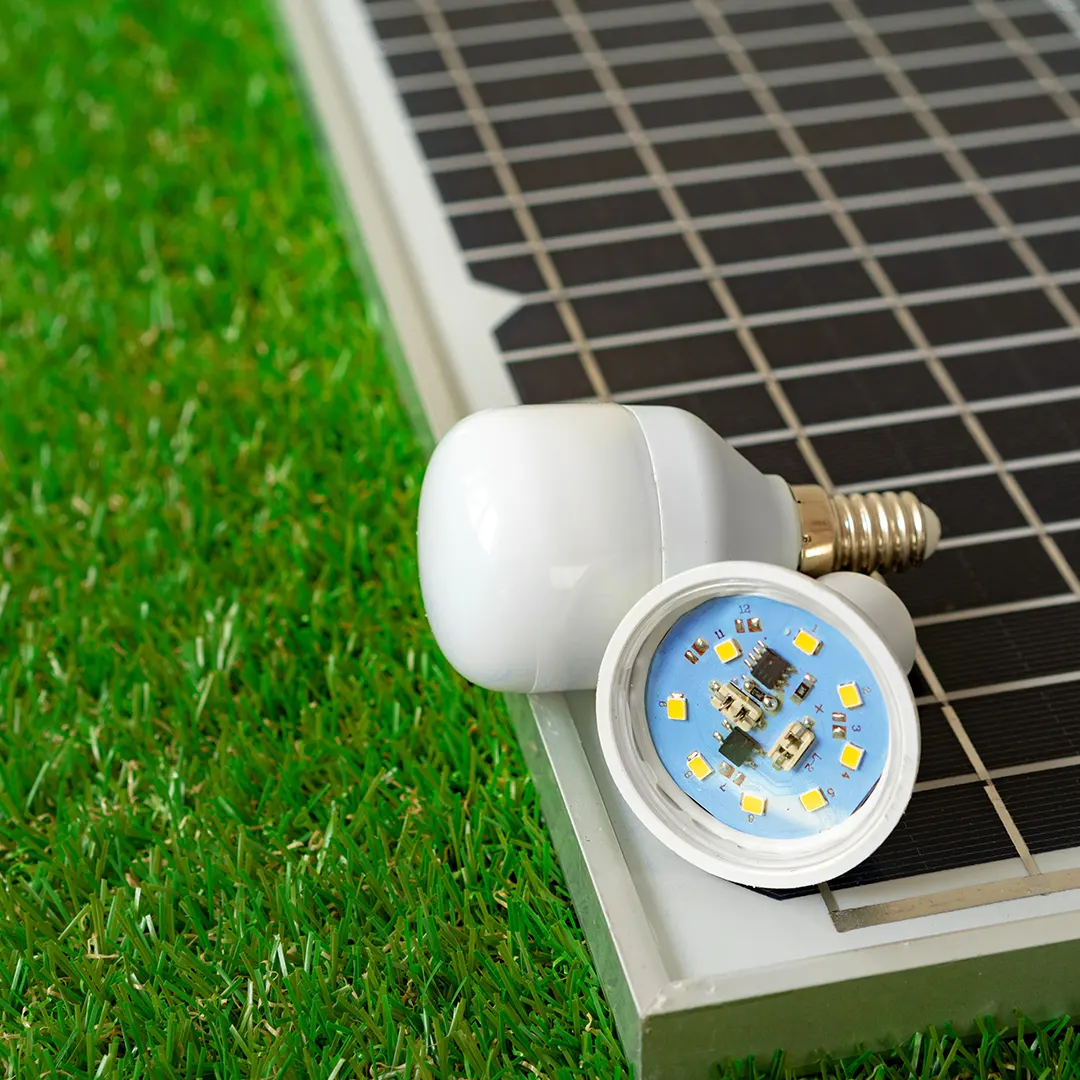
Solar Manufacturing in India: A Growing Hub for Green Energy
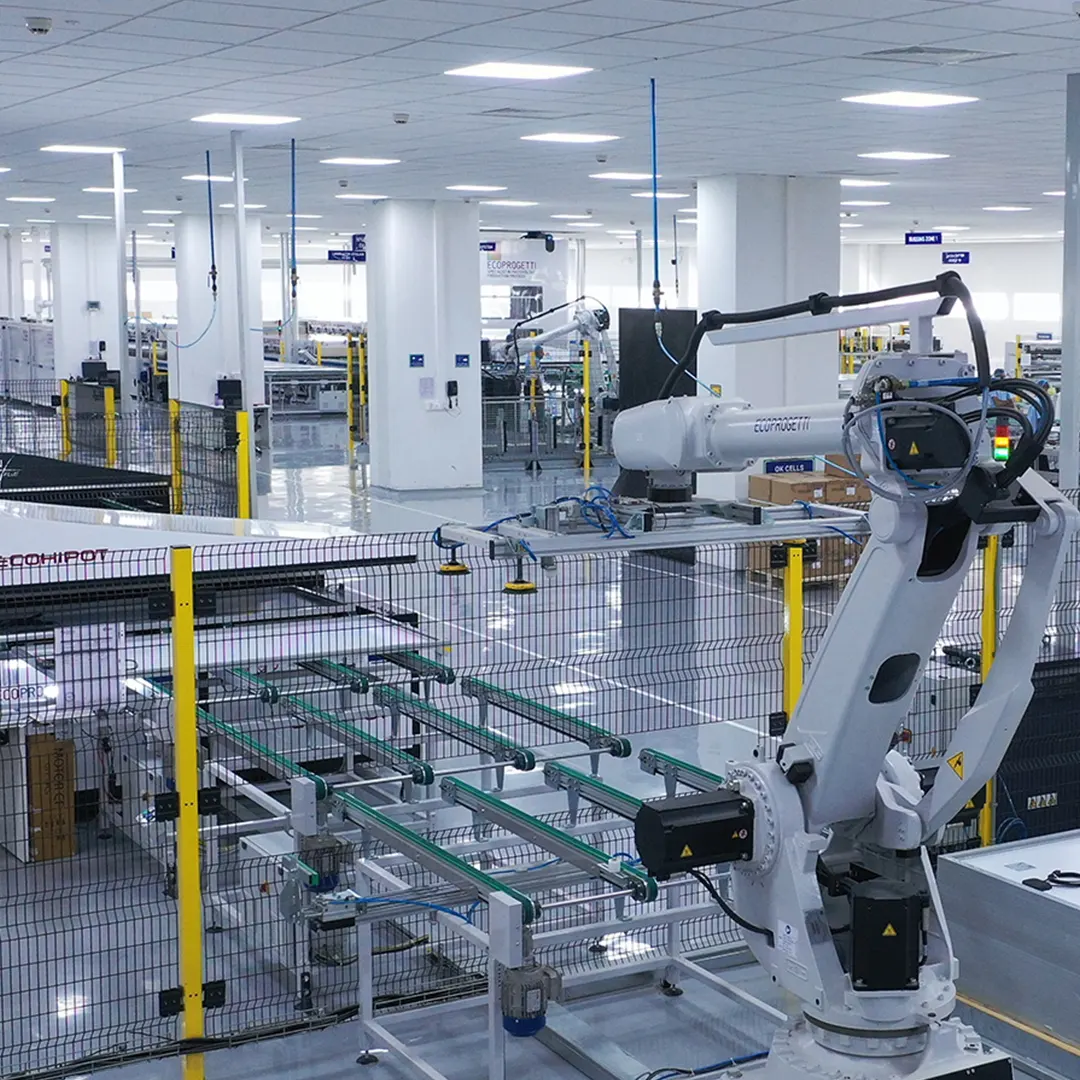
The Role of Indian Solar Manufacturers in Green Energy
India has emerged as a significant player in the solar manufacturing industry. With companies focusing on high-quality, efficient, and sustainable PV modules, the country is driving the growth of green energy solutions. Solar panel manufacturers in India are not only catering to domestic energy needs but also contributing to the global solar market.
Solar Manufacturing in Gujarat: A Center for Innovation
Gujarat is one of the leading states in India that has embraced solar energy on a large scale. With several solar manufacturing companies in Gujarat, the state has become a hub for innovation in solar technologies. These companies are known for producing high-quality solar PV modules that are efficient, durable, and sustainable.
Solar Panels: Efficiency, Durability, and Sustainability
Evaluating the Efficiency and Sustainability of Solar Modules
When choosing a solar panel, efficiency is not the only factor to consider. The durability, build quality, and sustainability of the materials used also play a vital role. A high-efficiency panel may not necessarily be sustainable if it uses non-recyclable materials. Therefore, solar PV module manufacturers in India are increasingly focusing on both efficiency and sustainability to provide high-performing, long-lasting solutions.
Importance of Warranties and Certifications
Solar panel warranties provide two types of protection: a product warranty, which ensures the panel's durability and guards against manufacturing defects, and a performance warranty, which guarantees that the panel will maintain a certain level of energy output over time.
Certifications play a crucial role in the solar panel industry, serving as more than just compliance markers. They are key indicators of the quality and reliability of solar panel systems. By assuring consumers of the product’s performance, safety, and environmental standards, certifications greatly influence purchasing decisions.
The IEC is a leading organization in the solar panel industry, setting international standards for electronic devices, including photovoltaic (PV) panels.
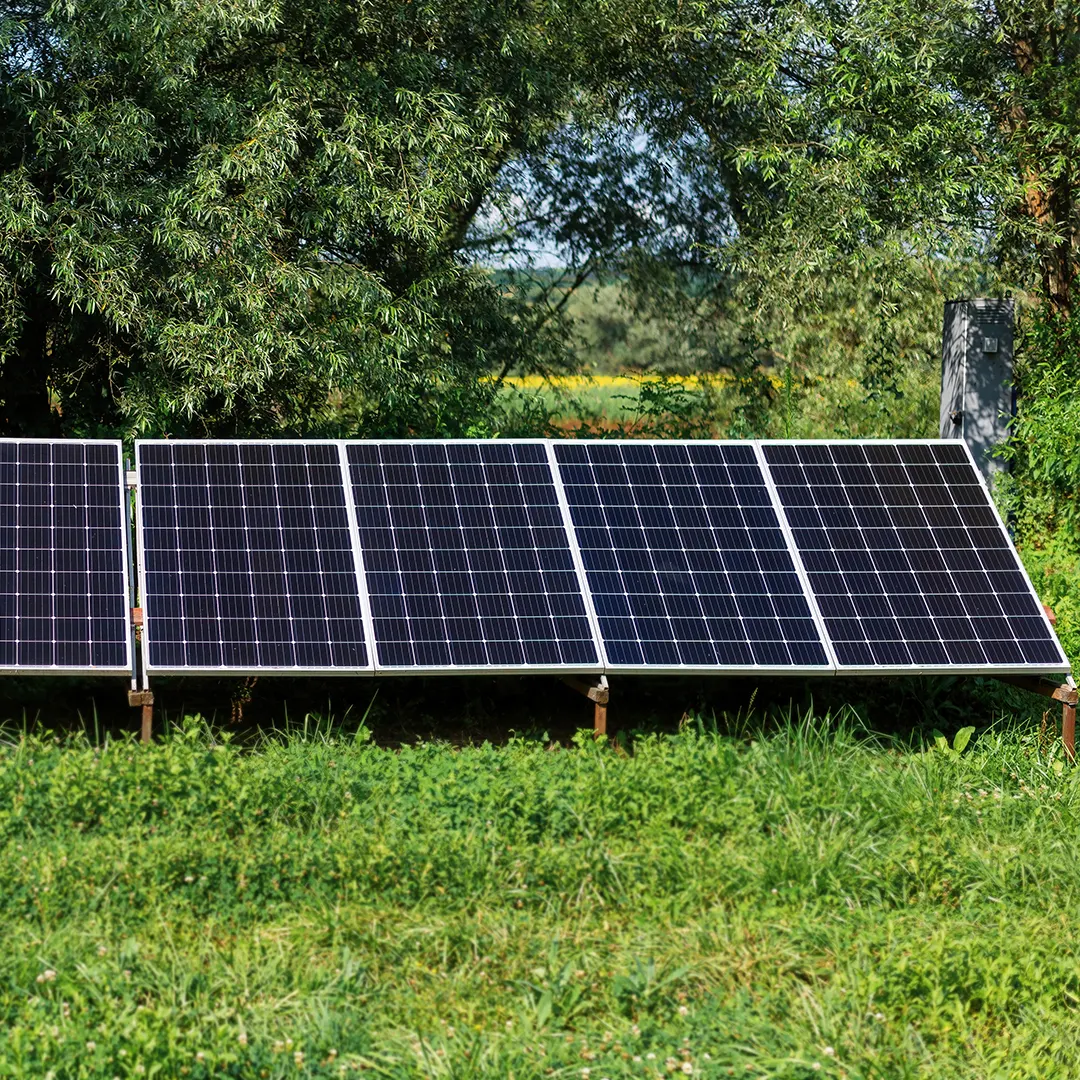
Wrapping Up
The difference between efficiency and sustainability may seem subtle, but both are critical when considering an energy system. Solar energy uniquely balances these two aspects, making it a key player in the future of green energy. Solar module manufacturers and solar panel manufacturers in India are driving the green revolution with their focus on innovative, efficient, and sustainable technologies. By choosing the right solar energy system, not only do you contribute to a sustainable future, but you also benefit from cost-effective and efficient energy production.
To learn more about choosing the best solar panels and understanding solar technology, feel free to visit our other informative blogs:
For more on our solar modules and products, you can visit our homepage .
Frequently Asked Questions
Efficiency rates for solar panels vary between 15-22%, depending on the type and technology used. Monocrystalline panels typically have higher efficiency.
Solar energy is sustainable because it uses sunlight, a renewable resource, and generates electricity without emissions or environmental harm.
Solar panels usually last around 25-30 years, with their efficiency gradually decreasing over time. Reputable solar module manufacturers often provide long-term warranties.
Several factors can affect the efficiency of a solar panel, including the type of technology used, location, angle of installation, and the presence of shading.
Choosing the best solar PV module depends on your energy requirements, budget, and space availability. It's advisable to consult with a reputed solar manufacturer.
For any product inquiries or assistance, feel free to Contact Us .